Our
Services
Investigations
Field Geotechnics
We carry out in-depth studies for our clients, according to the technical requirements, collecting information and data on the characteristics of the soil and rocks present in the most diverse subsoils of natural terrain and geotechnical structures, such as mining piles and dams.
The main techniques used include drilling for boreholes and special tests, collecting soil and rock samples, carrying out in situ tests, and installing instruments to measure geotechnical parameters.
The information is obtained by highly qualified professionals and experts in the field, guaranteeing the reliability of the data and services delivered to our clients.
Types of services performed:
Probing and Field Tests
Subsoil investigation methodologies enable us to make inferences about the resistance of the prospected material, its geological-geotechnical characteristics, and the identification of water levels.
- Auger Boring
- Percussive drilling
- Rotary boring
- Mixed drilling
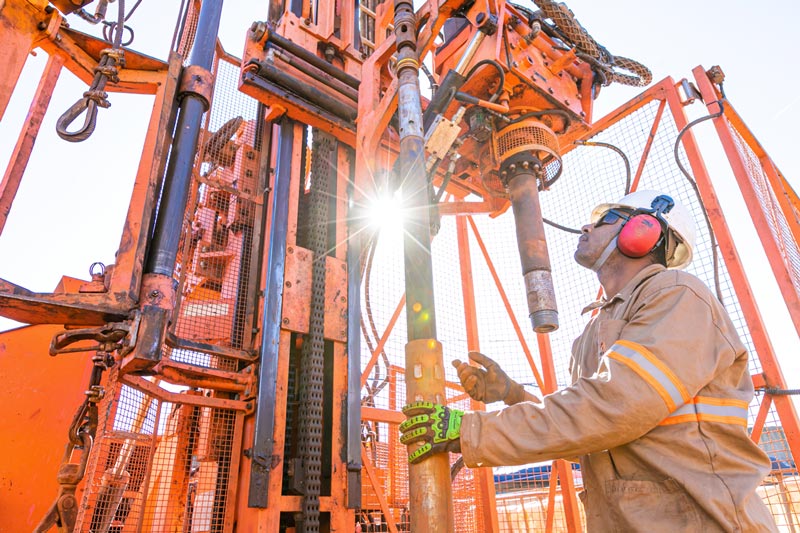
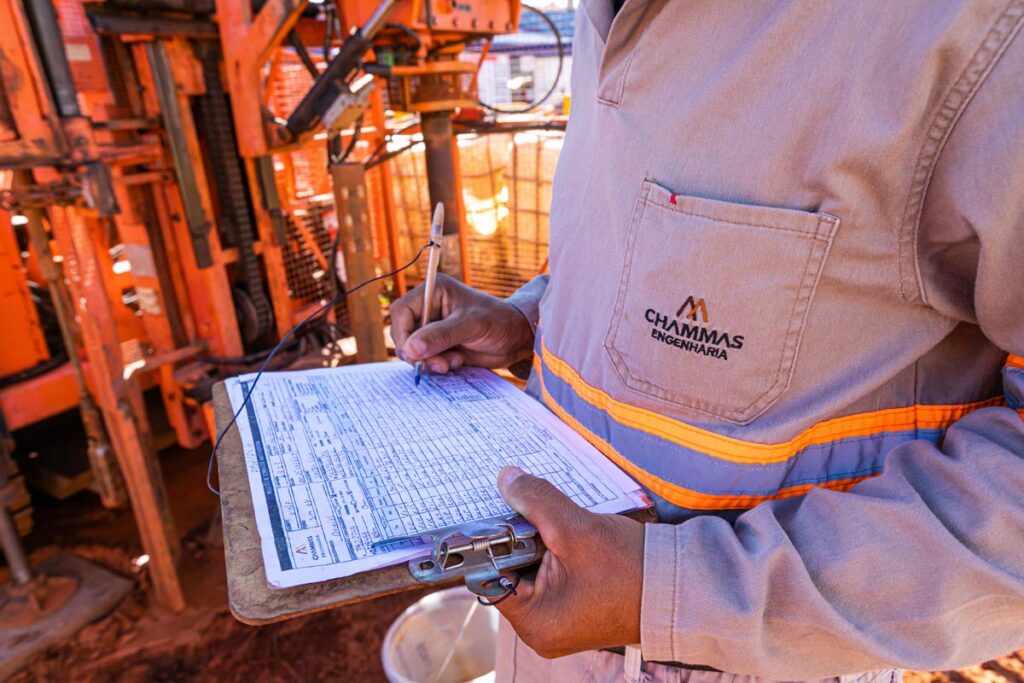
Sampling

Samples collection for tactile-visual identification and/or laboratory testing. Samples may be deformed or undeformed, to preserve the soil’s natural conditions in terms of tension and humidity.
They can be collected on the surface or at depth, using shovels or augers, in the form of blocks taken from trenches, or with special samplers such as Shelby, Denison, Osterberg, and direct push, among others.
- Undeformed blocks
- Deformed Samples
- Shelby type Sampler
- Denison type Sampler
- Osterberg Sample
- Direct-Push Sample
Conventional In-Situ Tests
Tests are carried out during the drilling process to obtain specific information on the materials being studied, such as infiltration tests on soils and water loss tests on rocks to obtain permeability parameters.
- Soil Infiltration Test
- Water-Pressure Tests
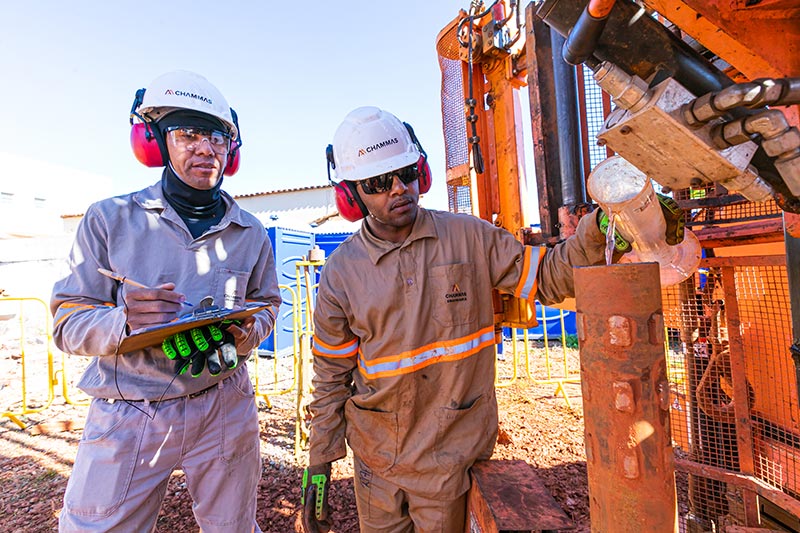
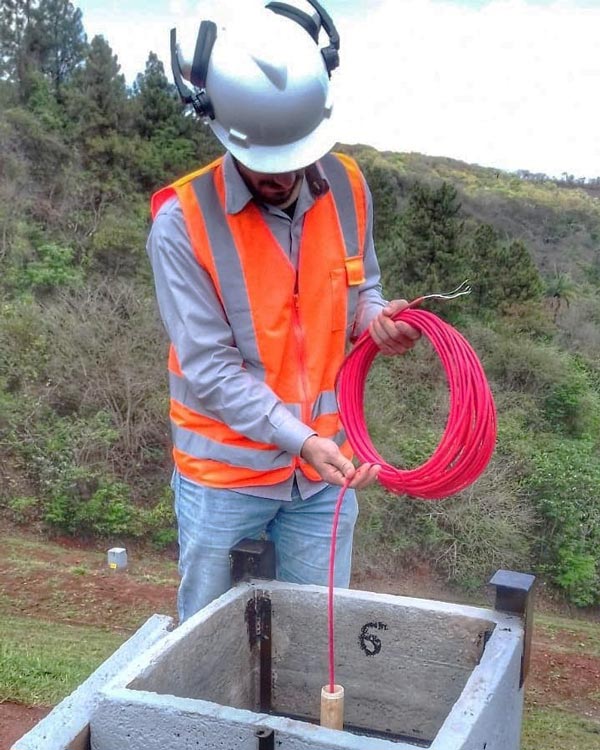
Instrumentation

Installation services for instruments used in different types of structural monitoring, such as displacements, piezometry, water level, and settlements.
- Water level indicator
- Casagrande Piezometer
- Electric Piezometer
- Casing Inclinometer
- In-Place Inclinometer
- Pressure Gauge
Special In-Situ Tests
Subsoil investigation methodologies combine sensing and technologies to obtain various geotechnical parameters that can be correlated with information on resistance, deformability, and permeability.
- CPTu testing
- SCPTu testing
- Dissipation testing
- DMT testing
- SDM testing
- Vane testing
- PMT testing
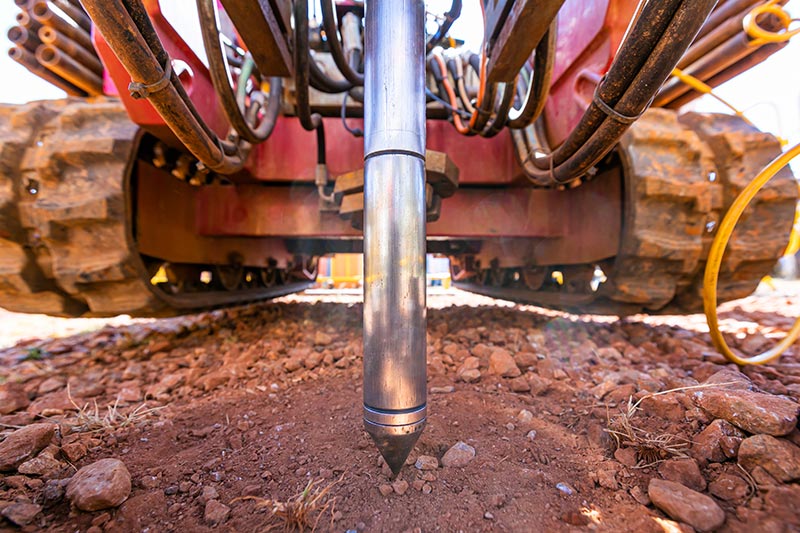
Central Laboratory and
Technological Control
With more than 30 years of excellence, the Chammas Engenharia Geotechnical Laboratory is recognized for the quality of its services and highly qualified team. Located in the Metropolitan Region of Belo Horizonte, our Central Laboratory, with an area of 720 m², uses cutting-edge technology to carry out a wide range of tests on soils, waste, and soft rocks.
In addition, we have Advanced Associated Units in several states, offering technological control services for infrastructure, dams, waste piles, and concrete throughout Brazil.
Our laboratories are managed by a robust information management system (LIMS), ensuring efficiency and safety in our processes.
Our service portfolio covers tests in monotonic, dynamic, saturated, and unsaturated conditions, providing innovative solutions for the characterization and analysis of construction materials.
We are committed to meeting current and future demands, anticipating needs related to the geotechnical behavior of materials, thus ensuring excellence in our geotechnical services.
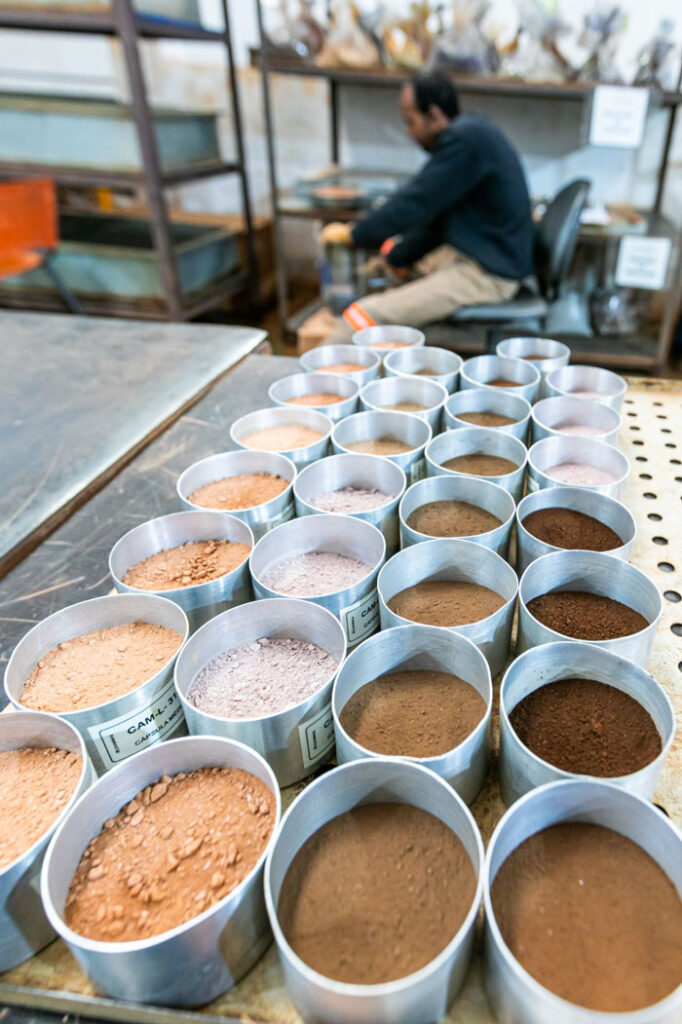
Characterization and Permeability in Geotechnical Laboratory Tests
Characterization tests help to understand the behavior of soil or rock under different conditions, such as strength, compressibility, permeability, and texture to determine the physical and mechanical properties of soils and rocks.
Description
• Moisture content;
• Specific mass of grains;
• Apparent density;
• Organic matter;
• Granulometry by sieving and sedimentation;
• SCS – Comparative Sedimetometric Test;
• Maximum and minimum void ratio;
• Contraction, liquidity, and plasticity limits;
• Normal, intermediate, and modified
Proctor compaction;
• CBR — California Support Index;
• Soil dispersibility — Pinhole Test;
• Column Sedimentation Test.
Permeability
• Permeability to Variable Load;
• Constant Load Permeability;
• Flexible Wall Permeability.
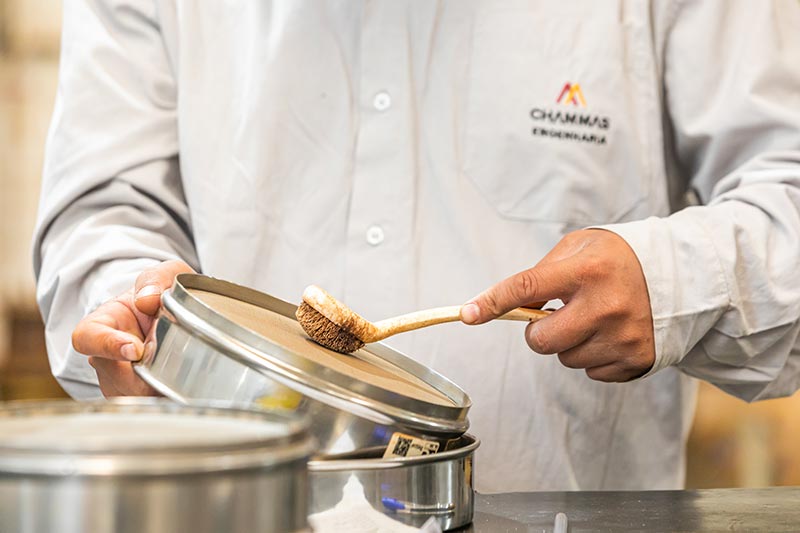
Oedometer Densification
This type of test provides information about soil compressibility and consolidation, which are crucial for foundation engineering projects to determine the ability of soil to consolidate under applied load.
- Oedometric densification;
- Oedometric densification with permeability determination.
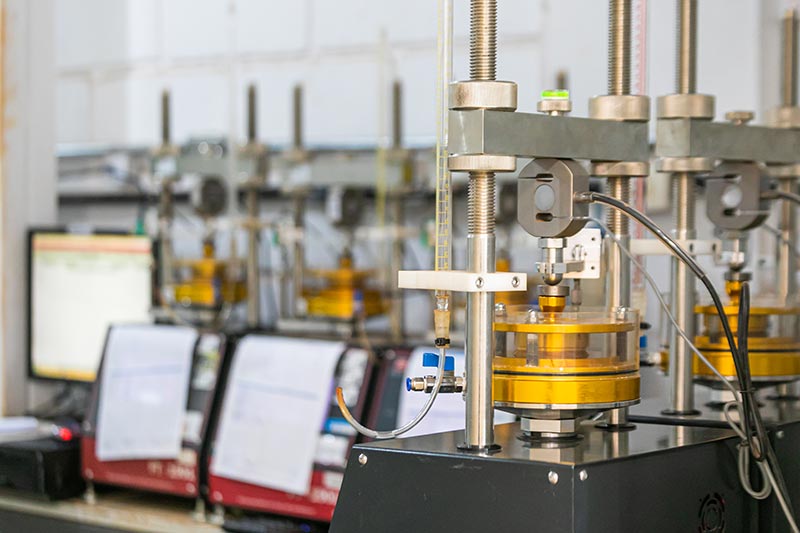
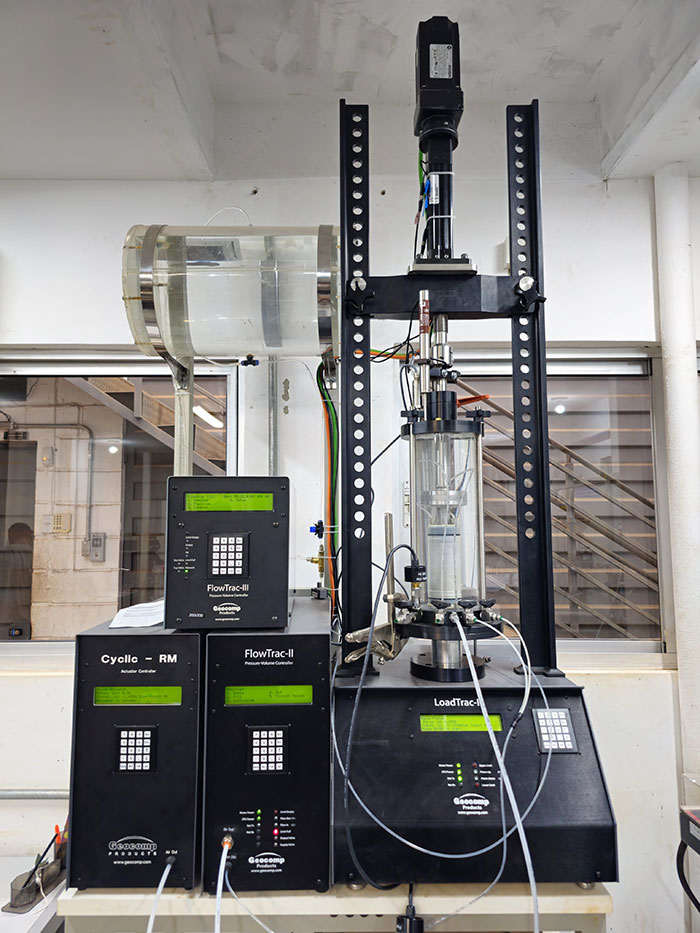
Triaxial
They allow the determination of the mechanical properties of the soil, including undrained and drained compressive strength. These tests help to understand the behavior of the soil under different stress conditions.
- CIU and CIU sat;
- CID and CIDsat ;
- CAU and CAUsat ;
- CAD and CADsat ;
- Anisotropically Densified, Drained, Constant Shear Triaxial Compression ;
- Permeability in Triaxial Chamber;
- Bender Elements ;
- Cyclic Tests;
- Determination of LEC;
- Foundation engineering objects;
- Oedometric density ;
- Oedometric density with the determination of permeability.

Shear
Shear tests are carried out to assess the soil’s resistance to shear deformation.
They help determine the shear strength of the soil, which is fundamental for the design of slopes, retaining structures, and foundations.
- Direct Shear — Direct Shear;
- Simple Shear — DSS;
- Cyclic Tests;
- Bender Elements.
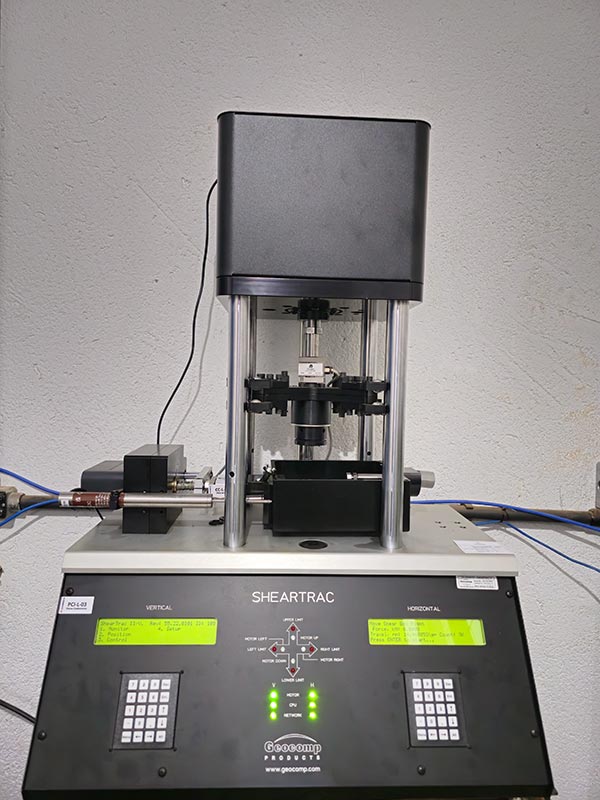
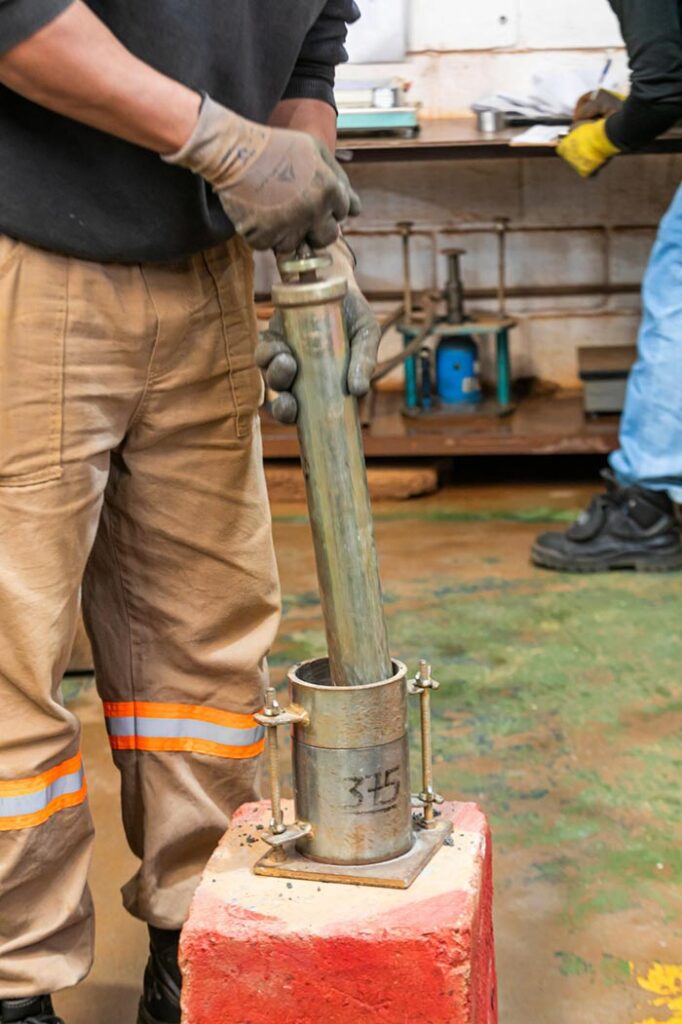
Technological Control
Quality Control of geotechnical works to ensure compliance with technical project requirements. Execution of compaction control and material characterization tests.
- Complete characterization;
- Collection of deformed and undeformed samples;
- “In Situ” infiltration tests;
- “In Situ” Permeability Test (Matsuo);
- MEA “In Situ”;
- Compaction control by Nuclear Density Meter;
- Compaction control using the HILF method (Beveled Cylinder, Sand Bottle);
- Laser granulometry with ultrasound;
- Technological control in aggregates;
- Technological Control in Concrete.

Main Chammas customers










Request quote
Enter the desired service
If you prefer, contact us by phone +55 (31) 3296-5095
or by email [email protected].